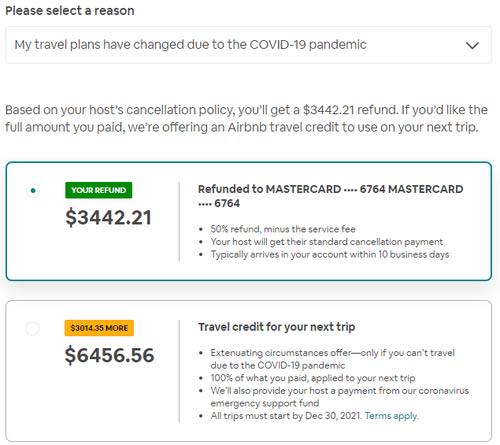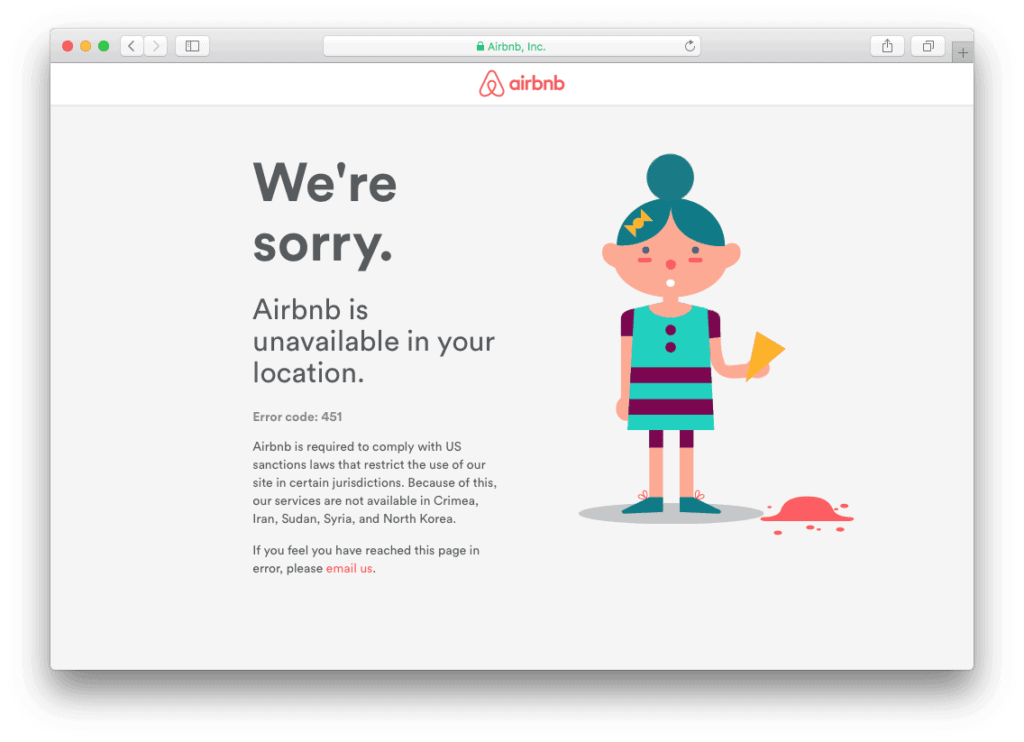While most hosts were busy looking at Airbnb CEO Brian Chesky’s live stream, where he promised to give back $260 million to Airbnb hosts, others were busy looking at something that Chesky did not mention: Airbnb was extending its extenuating circumstances policy to pre-March 14 bookings that check-in before May 31 (used to be April 14).
While Airbnb was announcing several relief measures after to the massive cancellations resulting from applying its extenuating circumstances policy, it was at the same time making more reservations subject to more cancellations and full refunds. And even retroactively.
It also introduced its Airbnb Travel Credit that guests can pick over the normal host cancellation policy refund. Read below to understand how it can affect you.
Extending Extenuating Circumstances to May 31: More reservations can be fully refunded. Even retroactively.
It may sound like a dry topic, but cancellation and refund policies are at the crux of the pain felt and the resentment expressed by Airbnb hosts. Extenuating Circumstances have used to supersede their existing cancellation policies.
We are not judging here whether it was the right thing for Airbnb to do. Brian Chesky says that it was a matter of public health to protect both hosts and guests.
What matters here is that Airbnb drew a line in the send 2 weeks ago:
- For new bookings after March 14, Airbnb will (in most case) honor the host cancellation policy, unless the guest is really infected by COVID-19
- Bookings made before March 14, and checking in before March 14, could be canceled by the guests under the Extenuating Circumstances policy.
What about reservations made BEFORE March 14 and staying AFTER March 14?
- 2 weeks ago, Airbnb said that extenuating circumstances would apply for reservations made on or before March 14, 2020, with a check-in date between March 14, 2020, and April 14, 2020.
- On March 30, on the day that Brian Chesky was talking live to host, Airbnb’s page about the extenuating circumstances and the coronavirus COVID-19 was updated. They now extend to May 31, instead of April 14, 2020.
Guests get a choice: Either be (at best) partially refunded by the host or get a 100% travel credit from Airbnb

On the same day that Brian Chesky was talking, interesting wording was added to the Airbnb COVID-19 policy page (again, this only for those reservations made on or before March 14, 2020, with a check-in date between March 14, 2020, and May 31, 2020)
Guests who cancel will have a variety of cancellation and refund options, and hosts can cancel without charge or impact to their Superhost status. Airbnb will either refund, or issue travel credit that includes, all service fees for covered cancellations.
Airbnb COVID-19 policy page
The image below shows you how it works:
– Either the guest is ok with getting whatever cash refund they are entitled to under the existing host cancellation policy (can be anything from $0 to 50% of the reservation amount)
– Or the guest picks Airbnb’s 100% travel credit to use later at an Airbnb property.
What happens if the guest picks the Airbnb travel credit instead of the host’s refund?
Then the host’s cancellation policy is superseded. It means that the host gets $0. So, to avoid a complete riot form Airbnb hosts, the company had to do something to ease the pain.
This is where the announced $250M come in (more on the exact announcement below): Instead of getting $0, the Airbnb Hosts get 25% of what they would normally have received for their existing cancellation policies.
– It does not mean 25% of the reservation value
– As you can read in detail below, if the host’s policy was to give back $0, then the host gest $0 x 25% = $0.
– If the host’s policy was to give back 50% of the reservation, then the host gets 25% of 50%, i.e. 12.5% of the reservation amount.
The travel credit is for any property at Airbnb, not for the specific property that the guest had booked. This is different from Vrbo’ system, where it is the host who chooses to issue a travel credit, to redeem at her/his property.
Retroactive pain: Guest can go back to settled cancellations and ask for more money
Note that full refunds to guests can be retroactive: Guests can go back to a past booking that they had canceled and for which they had already gotten some partial refund from the host under the normal host cancellation policy.

What Airbnb’s CEO promised to unhappy host
First, Airbnb’s Brian Chesky said he was sorry that hosts were not consulted on the massive cancellations. He says that Airbnb had gotten far from its hosts and should be more of a true partner.
He had 4 major announcements:
- Airbnb is paying out $250 million in cancellations back to hosts
- Hosts get 25% of what they would normally have received for their existing cancellation policies (this is retroactive as well, so Airbnb will send back money to hosts where they had forced refunds).
- This is for bookings made prior to March 14, the ones about which hosts have been super mad.
- Note that if the guest was still in a cancelable period, the host gets nothing. As a lot of hosts are under Flexible policies, most of them would get nothing.
- If a host was under a Strict, he/she would have received 50% of the reservation value as a cancellation free. Here, he/she gets 25% of this, so we are talking of 12,5% of the original reservation value.
- $10 million Super Host relief fund
- Grants of up to $5000 that won’t need to be paid back.
- Fund was started internally by employees for $1M, then Airbnb co-CEOs added $9M from their own pocket. Only for Super Hosts with a maximum of 2 properties, property managers can’t apply for this grant.
- Previous guests can send a support message and even financial support to their hosts.
- We wonder how likely this will be.
- Airbnb says that its lobbying effort has managed to get hosts included in the US stimulus package.
- Airbnb wants to do the same thing across the world.
Also announced:
- Working on sanitation checklists (similar to their China program, see here)
- Working on travel insurance and loss of income insurance
- 50,000 hosts have already volunteered to host medical staff through Airbnb’s program (objective: 100,000)










